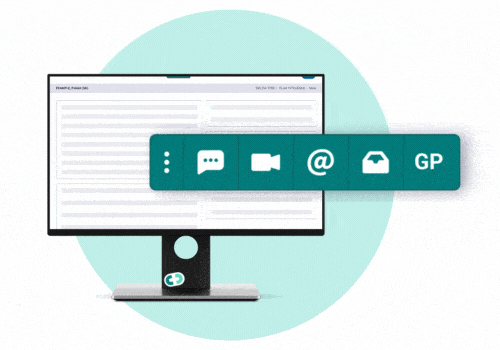‘Grave concerns’ over new GP dataset
- 16 January 2013

GPs and privacy experts have “grave concerns” about an extensive new dataset to be extracted from GP practices.
The NHS Commissioning Board published its first planning guidance for the NHS – ‘Everyone Counts: Planning for patients 2013-2014’ – last month.
It says a new GP dataset will be “requested” from GP practices for submission to the Health and Social Care Information Centre, described as a “statutory safe haven.”
“The patient identifiable components will not be released outside the safe haven except as permitted by the Data Protection Act,” it adds.
Practices will be requested to provide data on patient demographics, events, referrals, diagnosis, health status and exceptions.
This includes information on patients’ alcohol consumption and whether a GP has given exercise or dietary advice or completed a mental health review.
GP practices are expected to provide the data using the General Practice Extraction Service.
“The data will flow securely, via GPES, to the HSCIC, the statutory safe haven, which will store the data and link it only where approved and necessary, ensuring that patient confidentiality is protected,” the guidance explains.
Potential uses for this data are not detailed, however the NHS CB’s national director of patients and information, Tim Kelsey told a conference in December that a “standardised routine set of data” would be required from all GPs to help assess their quality.
Dr Paul Cundy, joint chairman of the BMA and RCGP’s joint IT committee, said the committee had no prior warning of the new data set before it was published in December.
The committee has met with Kelsey to discuss the proposals and invited him to its next meeting for “further discussions.”
“It’s an interesting proposal, but as with many simple ideas it has got some complex issues behind it,” Dr Cundy said.
“If you compare this data set with the Summary Care Record data set and the time it took to agree the SCR it’s obvious that we will need to be having quite prolonged discussions.”
“I know that there will be a significant number of patients who will not want their identifiable data to leave the practice.”
“The issue for me is what should a GP do if a patient explicitly dissents from this sort of data set going on to the IC?”
Dr Cundy added that the principles of GPES – that GPs can decide whether to allow each individual extraction – apply to whatever data is being extracted.
“So as far as I’m concerned if the practice doesn’t want to partake in this they shouldn’t have to,” he explained.
Ross Anderson, Professor of Security Engineering at Cambridge University, told EHI that privacy in the NHS has “effectively been destroyed” over the past year.
He dated its destruction from Prime Minister David Cameron’s announcement regarding the greater use of NHS data by commercial organisations such as drug companies.
“What the BMA and GMC should do is stop pretending that medical confidentiality exists – it’s over,” he said.
“They should say, ‘I’m sorry but anything you tell us goes into a computer and off to the government and is sold to whoever wants to pay for it’.”
He questioned how patients could opt out of this data service and believed the thousands of people who have opted out of the Summary Care Record scheme are going to have their explicit prohibitions disregarded.
“The implication of this is that all sorts of personal information, which patients assumed would remain within the surgery, is now going to be available to large numbers of people.”
Anderson said this would be contrary to the European Convention on Human Rights.
Methods used historically by the HSCIC to de-identify patient information had not been sufficient and he believed it was, “only a matter of time before something really unpleasant happens, then public confidence will take a catastrophic nosedive.”
Hampshire GP Neil Bhatia said he has “grave concerns” about the dataset.
“Confidentiality within the medical services is dying, with patients completely disengaged from the process of their data being vacuumed up by the IC and hence unaware and unable to object,” he said.
“The concept that GP practices will effectively make all their patients aware of this, and of their rights, is frankly ludicrous.”




